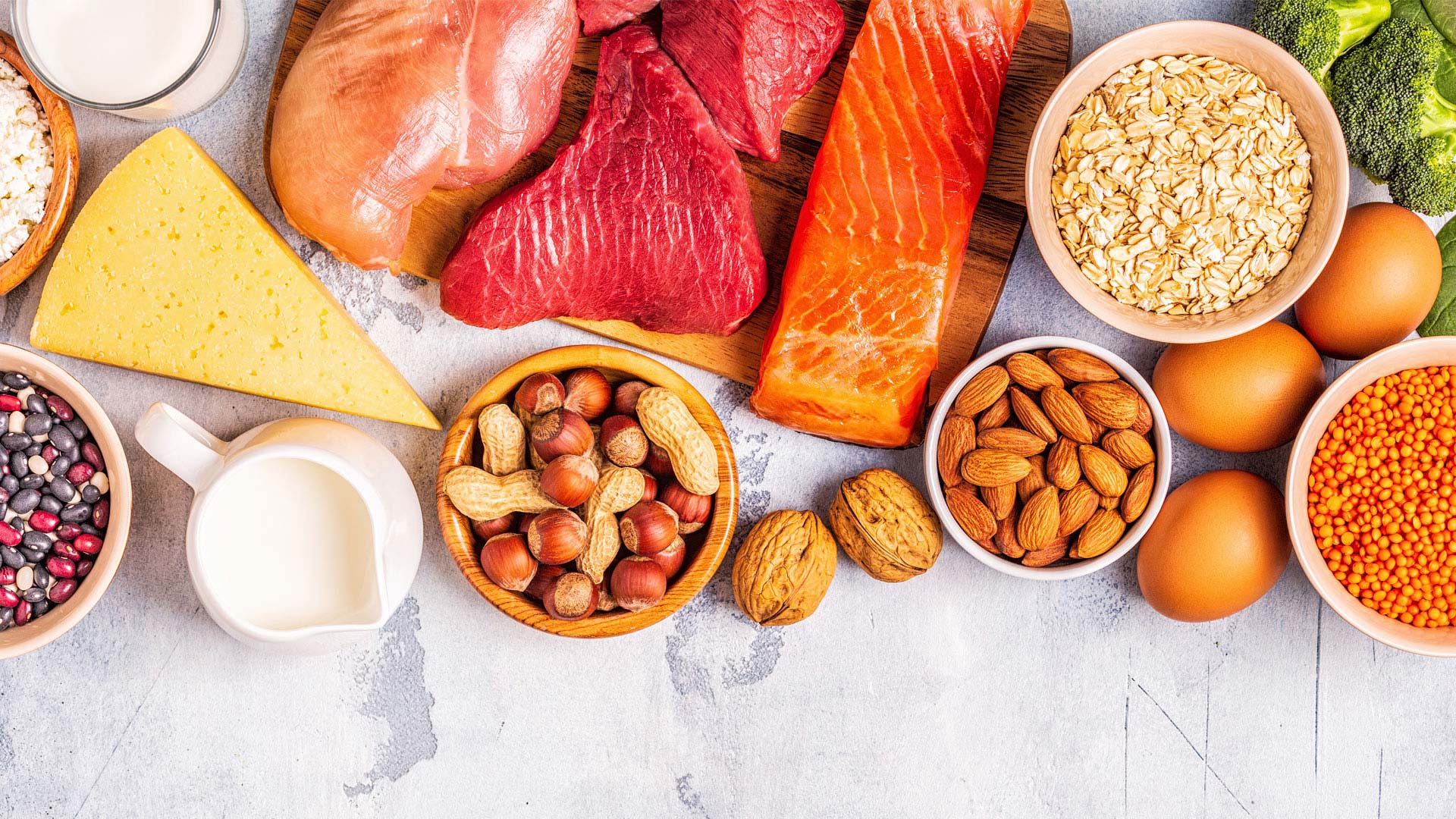Hello and welcome to this post on eating a heart-healthy diet. Maintaining a healthy heart is vital for overall health and well-being, and one of the best ways to do that is through your diet. In this post, we'll be discussing six tips for eating a heart-healthy diet. These tips include choosing nutrient-dense foods, limiting unhealthy fats, reducing sodium intake, limiting added sugars, choosing lean proteins, and staying hydrated. By incorporating these tips into your daily routine, you can promote heart health and reduce your risk of heart disease. So let's dive in and learn more about how to eat a heart-healthy diet.
1, Choose nutrient-dense foods.
When it comes to promoting heart health, choosing nutrient-dense foods is key. These foods provide essential nutrients such as vitamins, minerals, and fiber, which can help lower cholesterol levels, reduce inflammation, and improve overall heart health.
So what are some examples of nutrient-dense foods that can promote heart health? Let's break it down:
Fruits and vegetables: Fruits and vegetables are rich in vitamins, minerals, and antioxidants that can help reduce the risk of heart disease. They are also low in calories and high in fiber, which can help maintain a healthy weight and reduce the risk of high blood pressure.
Whole grains: Whole grains, such as brown rice, quinoa, and oats, are a great source of fiber, vitamins, and minerals. They also contain antioxidants that can help reduce the risk of heart disease.
Lean proteins: Lean proteins such as fish, chicken, turkey, and legumes are low in saturated fat and cholesterol, making them an excellent choice for a heart-healthy diet. They are also a good source of protein, which can help maintain muscle mass and keep you feeling full.
Healthy fats: Healthy fats like those found in nuts, seeds, avocado, and fatty fish like salmon are an essential part of a heart-healthy diet. These fats can help reduce inflammation, lower cholesterol levels, and improve overall heart health.
Remember, when it comes to promoting heart health, it's not just about the individual foods you eat, but also about the overall balance of your diet. So be sure to choose a variety of nutrient-dense foods and try to limit processed foods, saturated and trans fats, added sugars, and sodium.
Incorporating these nutrient-dense foods into your diet can have a big impact on your heart health. So go ahead and fill your plate with colorful fruits and vegetables, choose whole grains over refined grains, opt for lean proteins, and include healthy fats in moderation. Your heart will thank you for it!.
2, Limit unhealthy fats.
Limiting your intake of unhealthy fats is an important step in promoting heart health. Saturated and trans fats are particularly harmful as they can increase your risk of heart disease by raising cholesterol levels and promoting inflammation.
So, what are some common sources of unhealthy fats that you should limit in your diet? Saturated fats are often found in animal products like fatty meats, butter, and full-fat dairy products. Trans fats are typically found in processed foods like fried foods, baked goods, and snack foods.
Instead of these unhealthy fats, aim to include healthy fats in your diet. These types of fats can actually help improve heart health by reducing inflammation, lowering cholesterol levels, and supporting healthy blood vessels. Some examples of healthy fats include:.
Nuts and seeds:. Almonds, walnuts, chia seeds, and flaxseeds are all great sources of healthy fats. They are also high in fiber, protein, and other essential nutrients.
Avocado:. Avocado is a delicious and versatile source of healthy fat. It is also rich in fiber, vitamins, and minerals.
Fatty fish:. Fatty fish like salmon, tuna, and mackerel are rich in omega-3 fatty acids, which can help reduce inflammation and improve heart health.
Olive oil:. Olive oil is a healthy and flavorful oil that is rich in monounsaturated fats, which can help reduce inflammation and lower cholesterol levels.
Remember, it's not just about avoiding unhealthy fats but also about choosing healthy fats in moderation. So, while you should limit your intake of saturated and trans fats, don't be afraid to include healthy fats in your diet. By making these small changes to your diet, you can promote heart health and reduce your risk of heart disease.
3, Reduce sodium intake.
Reducing sodium intake is an important part of promoting heart health. Excessive sodium intake can lead to high blood pressure, which is a major risk factor for heart disease.
The American Heart Association recommends that adults should aim to consume less than 2,300 milligrams of sodium per day. However, the average American consumes more than 3,400 milligrams of sodium per day, mostly from processed and restaurant foods.
To reduce your sodium intake and promote heart health, try to limit your intake of processed and restaurant foods. These foods are often high in sodium, and the sodium content can add up quickly if you eat them frequently. Instead, try to choose fresh, whole foods whenever possible. These foods are naturally low in sodium and are packed with nutrients that can promote heart health.
When cooking, try using herbs and spices instead of salt to add flavor to your meals. This can help reduce your sodium intake while still making your meals tasty and enjoyable. Some examples of herbs and spices that you can use include basil, oregano, garlic, ginger, and cumin.
If you do use packaged foods, be sure to check the sodium content on the nutrition label. Choose foods that are lower in sodium or look for products labeled as "low sodium" or "no added salt."
Reducing your sodium intake can take some time and effort, but it's an important step in promoting heart health. By making small changes to your diet, such as choosing fresh foods, using herbs and spices, and reading nutrition labels, you can reduce your sodium intake and lower your risk of heart disease.
4, Limit added sugars.
Limiting your intake of added sugars is another key step in promoting heart health. Consuming too much added sugar can increase your risk of heart disease by contributing to inflammation, insulin resistance, and high blood pressure.
Added sugars are sugars and syrups that are added to foods during processing or preparation. Examples of foods that are often high in added sugars include sugary drinks, candy, baked goods, and processed foods.
To limit your intake of added sugars and promote heart health, try to avoid sugary drinks like soda, energy drinks, and sweetened coffee or tea. Instead, opt for water, unsweetened tea, or sparkling water with a splash of fruit juice.
When it comes to sweet treats, try to choose options that are lower in added sugar or make your own treats using natural sweeteners like honey, maple syrup, or dates. You can also try swapping out sugary snacks for fresh fruit, which is naturally sweet and packed with heart-healthy nutrients.
Reading food labels can also be helpful in identifying foods that are high in added sugars. Look for products with low or no added sugars, and be aware of the different names that added sugars can go by, such as corn syrup, high-fructose corn syrup, and cane sugar.
Remember, it's not about completely eliminating sugar from your diet, but rather limiting your intake of added sugars. By making small changes to your diet and choosing lower-sugar options, you can promote heart health and reduce your risk of heart disease.
5, Choose lean proteins.
Choosing lean proteins is an important part of promoting heart health. Lean proteins like fish, chicken, turkey, and legumes are rich in nutrients and can provide important health benefits.
On the other hand, red meat and processed meats like bacon, sausage, and deli meats are linked to an increased risk of heart disease. These meats are often high in saturated fat, which can raise cholesterol levels and contribute to inflammation.
To promote heart health, try to choose lean proteins like fish, chicken, turkey, and legumes. These foods are lower in saturated fat and can provide important nutrients like omega-3 fatty acids, which are linked to a reduced risk of heart disease.
If you do choose to eat red meat, opt for lean cuts and limit your intake. For example, choose sirloin or tenderloin instead of ribeye, and try to limit your portion sizes.
When it comes to processed meats, try to avoid them whenever possible. These meats are often high in sodium and preservatives, which can increase your risk of heart disease and other health problems. If you do choose to eat processed meats, try to choose lower-sodium options and limit your intake.
By choosing lean proteins and limiting your intake of red meat and processed meats, you can promote heart health and reduce your risk of heart disease. Remember to focus on a variety of protein sources and pair them with other heart-healthy foods like fruits, vegetables, and whole grains for optimal health benefits.
6, Stay hydrated.
Staying hydrated is important for overall health, and can also promote heart health. Drinking enough water can help regulate blood pressure, prevent dehydration, and support proper heart function.
Aim to drink at least eight glasses of water a day, or more if you are active or live in a hot climate. You can also try incorporating other hydrating beverages like herbal tea or coconut water.
On the other hand, sugary drinks like soda and juice can contribute to weight gain and increase your risk of heart disease. These drinks are often high in added sugars and calories, and can lead to spikes in blood sugar levels.
To promote heart health, try to limit your intake of sugary drinks and opt for water or other low-sugar beverages instead. You can also try infusing your water with fruit or herbs for a refreshing, flavorful drink.
Remember, staying hydrated is just one part of promoting heart health. By combining healthy hydration habits with a balanced diet, regular physical activity, and other heart-healthy lifestyle habits, you can reduce your risk of heart disease and promote optimal health and wellbeing.
That concludes our discussion on eating a heart-healthy diet. By following these six tips, you can take control of your health and reduce your risk of heart disease. Remember to choose nutrient-dense foods, limit unhealthy fats, reduce sodium intake, limit added sugars, choose lean proteins, and stay hydrated. Eating a heart-healthy diet doesn't have to be complicated or restrictive - small changes can make a big difference in the long run. Thank you for watching, and we'll see you in the next post.






Comments
Post a Comment